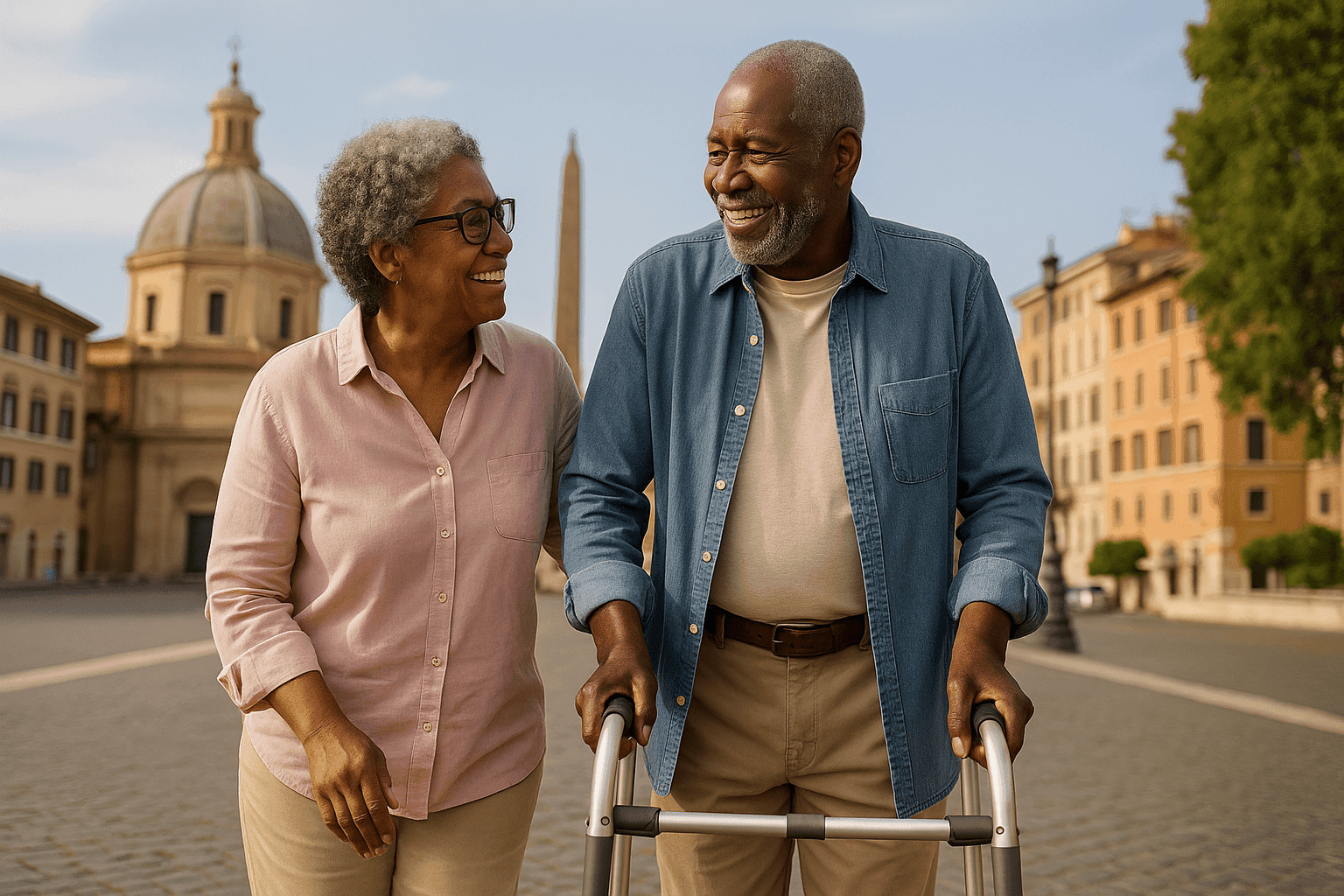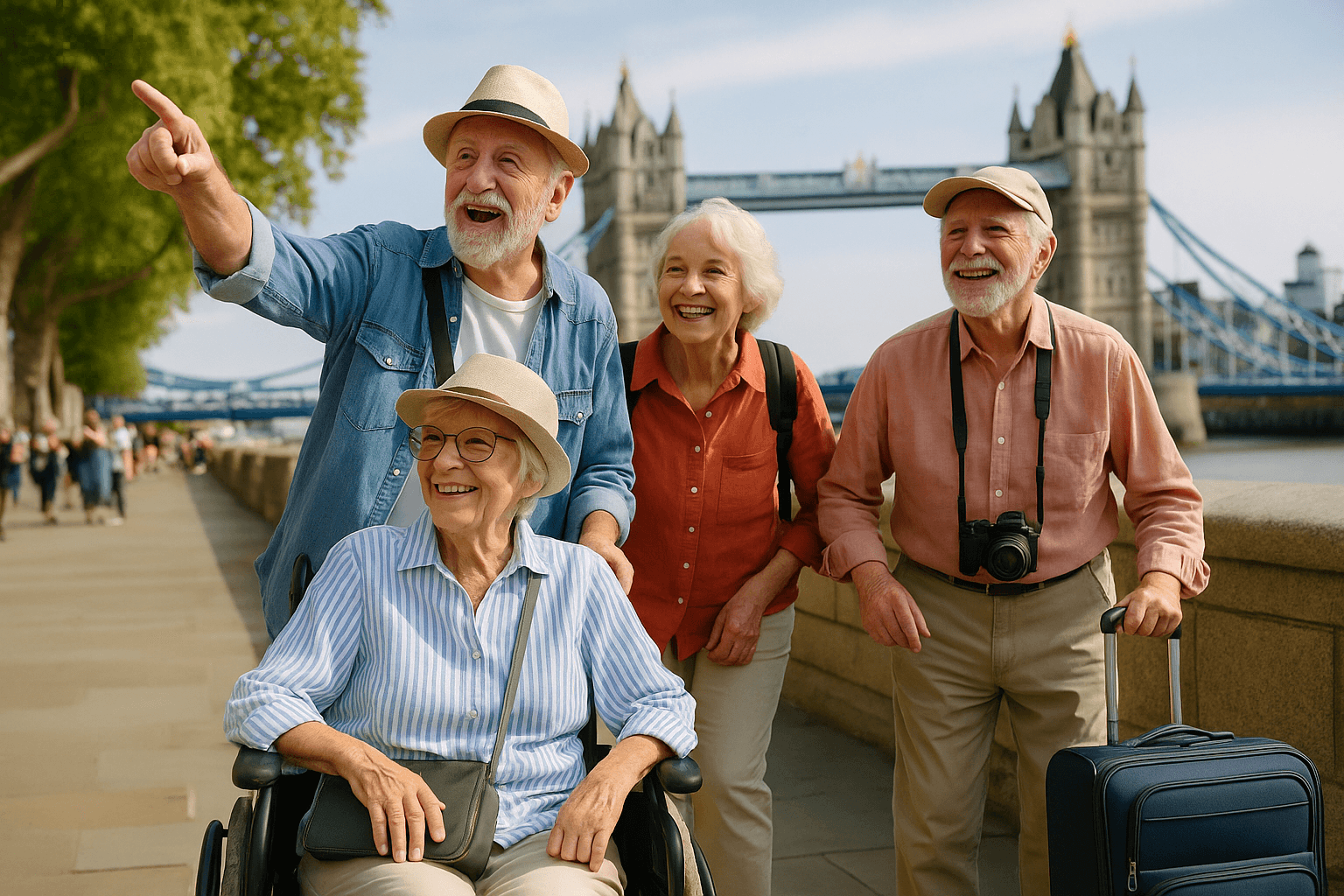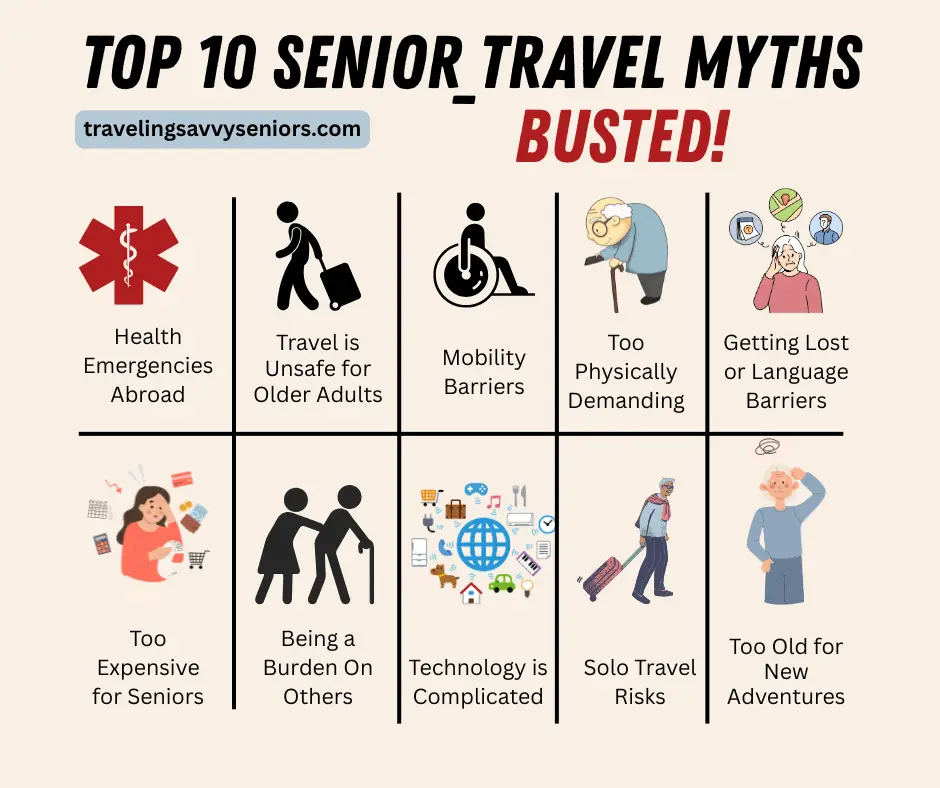An African safari tour presents numerous opportunities for travelers to explore and discover the many exciting sights and wonders of the continent. However, going on an African safari as a senior can be both exciting and challenging.
This article provides both practical African safari travel tips for seniors and ideas on how to make the tour safe and successful.
Key Priorities for Seniors Planning an African Safari Tour
A trip to the “bush,” undoubtedly, presents many fascinating experiences as well as unique challenges that you must be aware of before embarking on the journey. The key to a successful African safari adventure for seniors is laying proper groundwork.
Here are the areas you need to focus on when preparing for an African tour, especially if it’s your first time going on a safari.
Health Precautions for Seniors on African Safaris
As you age, your body becomes more susceptible to infections, putting your overall health at risk. It’s, therefore, important to prioritize your health and take all the necessary precautions before you travel.
If you have any underlying medical conditions, consult your medical doctor for advice and prescriptions that’ll sustain you throughout the trip. You may be required to go for shots and obtain proof of vaccination before embarking on your journey.
Different African countries have different vaccination requirements for tourists. So, familiarize yourself with the vaccination guidelines of your desired country of destination, as well as any existing contagions you need to protect yourself against. For instance: all tourists entering Kenya are required to produce their yellow fever vaccination certificates at the point of entry, especially those coming from regions considered to have a high risk of transmission. Furthermore, the World Health Organization (WHO) and Centers for Disease Control (CDC) advise travelers to Kenya to get immunizations for cholera, polio, typhoid, rabies, hepatitis A, and malaria.
Study the weather conditions in your safari destination country and how they’re likely to impact your health. Inform your Travel Advisor of any mobility concerns you may have or need to be taken into consideration to make your expedition more convenient and safer.
You’ll need travel insurance to cover any medical emergencies that may occur during your safari.
Safety Guidelines for Senior Travelers on Safari
Although many parts of Africa are relatively safe for tourists, you can’t afford to throw caution to the wind. Some countries are constantly experiencing political turmoil, with some regions being overrun by insurgents who can be quite vicious to foreigners.
Some places aren’t safe to travel at night, particularly for seniors with mobility issues. If you’re using public transport, plan your travel appropriately to avoid getting stranded in the middle of the jungle.
Your Travel Advisor should get you the most reliable and convenient means of transport from the moment you arrive in the country to the last day of your stay. Only carry the necessary stuff like passport, visa, credit card, medication, phone, and anything else you need for survival.
Avoid expensive items like jewelry and bundles of cash because they might make you a target for criminals. Learn how to keep your valuables safe when travelling and choose the best time to travel.
Hire a tour guide who’s familiar with the areas you’re planning to tour to help you navigate the jungle safely. Some safari destinations are home to some of the most vicious wild animals, like lions, leopards, buffalo, elephants, hyenas, and venomous snakes.
Without an experienced tour guide, you risk wandering into their territories, which could have catastrophic outcomes. A guide will help you get close enough to the African beasts and explore their spectacular features without endangering your life.
Travel Budget for Seniors on an African Safari
Your travel budget is important as it will determine your ultimate African safari experience. As a senior traveler, you’ll be looking at your budget from two critical perspectives: experience and ease.
You may need a less strenuous travel that doesn’t take away the elements of fun and a real jungle experience. For example, you have to decide whether to stay in a lodge with air-conditioned rooms, hot showers, and warm beds or in a tented camp in the middle of the jungle.
The cost difference between the two types of accommodation can be quite significant, depending on your travel destination. In Kenya, the cost of staying in a tented camp is higher than in a safari lodge mainly because tents provide an additional element of exclusivity and require more resources to set up and maintain.
Furthermore, most tented camps are usually built in the bushes, taking you closer to the wild and giving you a natural feel of living in the jungle, which is the essence of an African safari. A stay in a tented camp in Masai Mara may cost you around $490 per night, while a lodge may cost you around $195 a night.
Your travel budget will also depend on the time you plan to travel. Choosing the right season for your African safari can save you a great deal of money. Going on an African safari will cost you more money than traveling during the high season.
The busiest safari seasons in Kenya are between June and October during the Great Wildebeest Migration and between December and April during the Christmas and Easter holidays.
So, if you plan to travel to Kenya for a safari experience during the low season, plan your trip between late April and early June. You can also enjoy great travel discounts if you choose to travel during the shoulder seasons (immediately before and after peak seasons).
Tips for Choosing Senior-Friendly Safari Destinations and Activities
Where you plan to tour will determine the overall cost of your safari trip. The difference in cost of traveling to different African destinations depends on the sights available and the activities you’ll engage in.
Accessibility of some safari destinations is quite challenging and costly because of poor roads, bad weather, and security incidents. Your Travel Advisor should provide you with reliable transportation and enough security for your comfort and safe stay, which costs money.
A good Travel Advisor will take the time to research affordable and accessible safari destinations in your desired areas to secure travel deals on your behalf. They are aware of hotels, travel companies, and camping sites that offer competitive prices and tailor safari experiences to every traveler’s needs.
Here are some of the most popular African safari destinations that are senior-friendly:
- Serengeti National Park (Tanzania)
- Maasai Mara National Reserve (Kenya)
- Kruger National Park (South Africa)
Some Travel Advisors have special packages for seniors that you can take advantage of, especially if you’re travelling as a group of seniors. Traveling as a group also reduces the total budget because you can share the cost.
Choose lodges or camps that offer comfort over luxury and engage in activities that suit your interests and mobility. You can save money by choosing budget-friendly packages that cover the most essential aspects of your safari experience, like accommodation, entertainment, transport, and tour guide services.
In Summary
While planning an African safari tour for seniors can be challenging due to the extra mobility and safety considerations you have to put in place, don’t let your age, health, or money deter you from enjoying a real African safari experience.
These African safari travel tips for seniors will help you get the right itinerary, accommodation, travel guide, safe and accessible destination, and senior-friendly activities without breaking the bank.
Let us know if these tips provided you with answers to the questions you had about African safari tours. You can also give us any suggestions that you feel can make African travel for seniors safer and more enjoyable. Remember, our Travel Advisor is here to assist you with your safari, or any other, travel plans. We can also help you connect with senior-friendly tour operators.
If you haven’t already, please subscribe to our website to receive our newsletters that are packed with more useful senior travel tips.
Turning Dreams into Destinations





